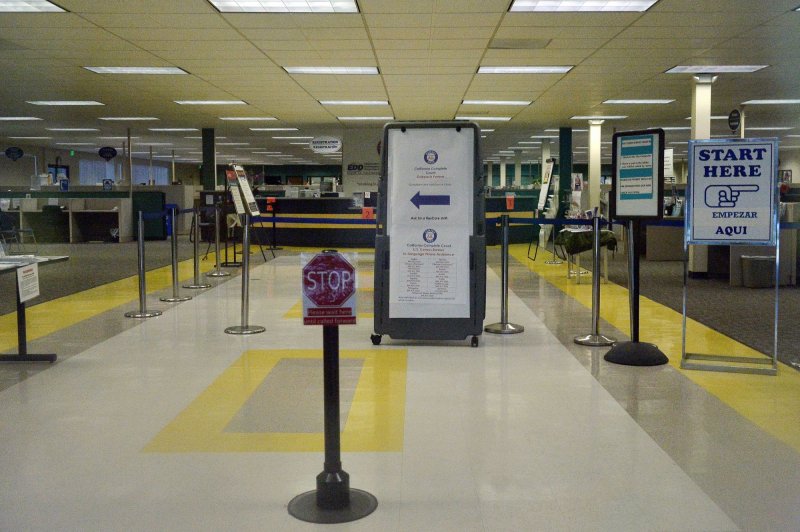GAO report: Most states underpaying unemployment benefits, claims numbers inflated

Unemployed workers who came seeking information about their unemployment claim arrived only to find the California Employment Development Department office in Canoga Park, California, closed. Photo by Jim Ruymen/UPI | License Photo
Nov. 30 (UPI) -- A government watchdog reported Monday that millions of Americans may be getting shortchanged on unemployment payments and that unemployment data may have been inflated by backlogs.
In the report by the U.S. Government Accountability Office released Monday, the nonpartisan auditing agency found that the majority of states have been paying claimants in the temporary Pandemic Unemployment Assistance Program the minimum benefit instead of the amount they are owed based on past earnings.
In 27 of the 41states average weekly PUA benefits paid were within 25% of the minimum benefit amount, including 10 within 10% of the minimum.
"This suggests that many individuals in these states are receiving the minimum benefit -- because the average is close to the minimum," the report stated.
In part due to these shortchanged payments, the report found that average regular unemployment benefits and weekly PUA benefits left many households lower than the $245 per week required to remain above the poverty line for a one-person household.
The report also found issues with accurately assessing how many people are receiving unemployment benefits.
Specifically, the GAO noted that the Department of Labor's weekly report on jobless claims does not accurately reflect the total number of people receiving unemployment claims.
The GAO noted that backlogs brought on by an increased number of claims amid the COVID-19 pandemic have caused numbers to appear inflated as each week of unemployment is counted as a separate claim during certification when a single person has claims processed for multiple weeks.
Further, other issues such as high levels of fraudulent claims as well as delays and denials for legitimate claims have skewed the numbers.
In response, the GAO recommended the Labor Department revise its weekly news releases to make clear that the numbers are not an accurate representation of how many Americans are claiming benefits and pursue other avenues to report the correct data.
No comments:
Post a Comment